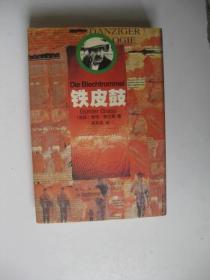
Lolita(50th Anniversary Edition)
¥ 37.6 八五品
仅1件
作者Vladimir Nabokov(弗拉基米尔·纳博科夫) 著
出版社Random House US
出版时间1989-03
版次1
装帧平装
货号木四G4
上书时间2024-09-18
- 在售商品 暂无
- 平均发货时间 11小时
- 好评率 暂无
- 最新上架
商品详情
- 品相描述:八五品
图书标准信息
- 作者 Vladimir Nabokov(弗拉基米尔·纳博科夫) 著
- 出版社 Random House US
- 出版时间 1989-03
- 版次 1
- ISBN 9780679723165
- 定价 119.50元
- 装帧 平装
- 开本 32开
- 纸张 胶版纸
- 页数 317页
- 正文语种 英语
- 【内容简介】
-
Awe and exhiliration—along with heartbreak and mordant wit—abound in Lolita, Nabokov's most famous and controversial novel, which tells the story of the aging Humbert Humbert's obsessive, devouring, and doomed passion for the nymphet Dolores Haze. Lolita is also the story of a hypercivilized European colliding with the cheerful barbarism of postwar America. Most of all, it is a meditation on love—love as outrage and hallucination, madness and transformation.
《洛丽塔》纳博科夫最著名最有争议的小说杰作。
小说描述一位从法国移民美国的中年男子杭柏·杭柏特(Humbert Humbert)在少年时期,与一14岁的少女安娜贝儿发生了一段初恋,最后安娜贝儿因伤寒而早夭,造就了杭伯特的恋童癖(The child I love),他将“小妖精”定义为“九到十四岁”。杭柏特最先被一名富有的寡妇抛弃,后来又迷恋上女房东Charlotte Haze的12岁女儿洛丽塔(Lolita),亲呼她为小妖精。
洛丽塔恣意的挑逗杭伯特,使得杭伯特无法自拔,为了亲近这名早熟、热情的小女孩,杭柏特娶女房东为妻,成为洛丽塔的继父,他利用零用钱、美丽的衣饰等小女孩会喜欢的东西来控制洛丽塔。小说中的女孩原名桃乐莉·海兹(Dolores Haze),西班牙文发音的小名为洛丽塔(Lolita)或罗(Lo),因此作为书名。后来女房东发现自己的丈夫与女儿的不伦之恋,一时气疯往外跑,被车子撞死。杭柏特将洛丽塔从夏令营接出来一起旅行,两人尽情的缠绵。洛丽塔长大后,开始讨厌继父,她意识到“即使是最可悲的家庭生活也比这种乱伦状况好”。于是她开始跟年纪相当的男孩子交往,并藉著一次旅行的机会脱离继父的掌握,使得杭柏特一直无法寻获。
一日杭柏特收到洛丽塔的来信,信上说她已经结婚,并怀孕了,需要继父的金钱援助。杭柏特给了她400美元现金和2500美元的支票还有把屋子卖了买家先付的10000美元跟房子的契约,洛丽塔向他介绍自己的丈夫奎迪。洛丽塔拒绝了杭柏特再续前缘的要求,杭柏特伤心欲绝,他枪杀了那个带走洛丽塔的剧作家奎尔弟(作品中被女主角认为是东方天才哲学家),1950年杭柏特因血栓病死于狱中。17岁的洛丽塔则因难产而死。
由于纳波科夫是第一位以恋童癖题材作为主轴撰写并公开小说的作家,作品在上市初期饱受抨击,大多数的人称这部为一本肮脏下流的色情小说,但也成为后世公认的此类作品之经典。 - 【作者简介】
-
Vladimir Vladimirovich Nabokov was born on April 23, 1899, in St. Petersburg, Russia. The Nabokovs were known for their high culture and commitment to public service, and the elder Nabokov was an outspoken opponent of antisemitism and one of the leaders of the opposition party, the Kadets. In 1919, following the Bolshevik revolution, he took his family into exile. Four years later he was shot and killed at a political rally in Berlin while trying to shield the speaker from right-wing assassins.
The Nabokov household was trilingual, and as a child Nabokov was already reading Wells, Poe, Browning, Keats, Flaubert, Verlaine, Rimbaud, Tolstoy, and Chekhov, alongside the popular entertainments of Sir Arthur Conan Doyle and Jules Verne. As a young man, he studied Slavic and romance languages at Trinity College, Cambridge, taking his honors degree in 1922. For the next eighteen years he lived in Berlin and Paris, writing prolifically in Russian under the pseudonym Sirin and supporting himself through translations, lessons in English and tennis, and by composing the first crossword puzzles in Russian. In 1925 he married Vera Slonim, with whom he had one child, a son, Dmitri.
弗拉基米尔·纳博科夫(Vladimir Nabokov,1899-1977),纳博科夫是二十世纪公认的杰出小说家和文体家。1899年4月23日,纳博科夫出生于圣彼得堡。布尔什维克革命期间,纳博科夫随全家于1919年流亡德国。他在剑桥三一学院攻读法国和俄罗斯文学后,开始了在柏林和巴黎十八年的文学生涯。
1940年,纳博科夫移居美国,在威尔斯理、斯坦福、康奈尔和哈佛大学执教,以小说家、诗人、批评家和翻译家身份享誉文坛,著有《庶出的标志》、《洛丽塔》、《普宁》和《微暗的火》等长篇小说。
1955年9月15日,纳博科夫最有名的作品《洛丽塔》由巴黎奥林匹亚出版并引发争议。
1961年,纳博科夫迁居瑞士蒙特勒;1977年7月2日在洛桑病逝。
— 没有更多了 —




















以下为对购买帮助不大的评价